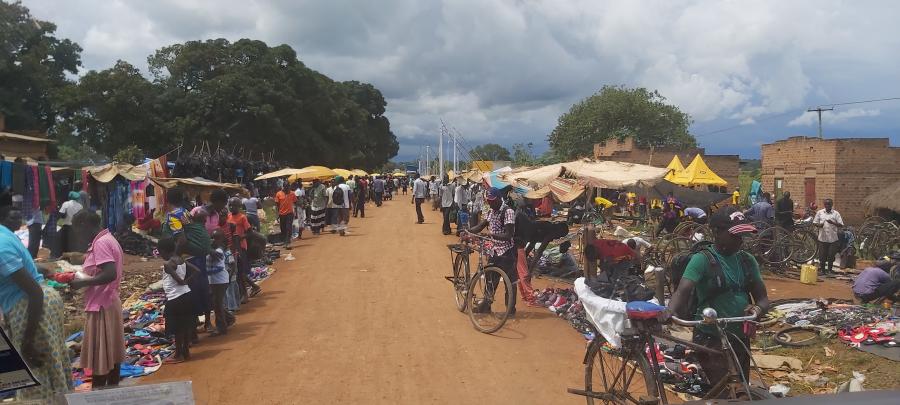
CSOs Meet to validate Uganda’s SDG Progress Report
The beginning of 2020 marks a decade ahead of implementation for the Sustainable Development Goals (SDGs) requiring intensified investments and monitoring. Uganda is one of the countries scheduled to present a voluntary national review at the upcoming High Level Political Forum session from July 6-17 in New York. The session is organized under the theme “Accelerated Action and Transformative Pathways: Realizing Decade of Action and Delivery of Sustainable Development”. It is recalled that Uganda was also one of the first volunteers for a readiness review in 2016 in which the country reported alignment of the SDGs into national planning strategies such as the National Development Plan II and key considerations for locations for the 2030 agenda in-country.
In order to harness consensus among key actors, the government of Uganda in collaboration with the Agenda 2030 Core Reference Group on the Sustainable Development Goals convened a consultative meeting to reflect on Uganda’s Voluntary Review Report to be presented at the HLPF. The meeting took place on February 13, 2020 at the Golf Course Hotel and was attended by over 50 actors including the National SDGs Secretariat, members of the Reference Group, Development partners and the media reaching approximately fifty participants from these institutions.
In her remarks, Ms. Rosa Malango, the UN Resident Coordinator applauded the consultative meeting as a reflection of the needed concerted efforts towards addressing the integrated global challenges from climate change to growing inequality and entrenched poverty, which no single actor can fully and unilaterally provide. She informed participants of the 2020 UN celebration of its 75th anniversary under the theme “The future we want, the United Nations we need: reaffirming our collective commitment to multilateralism”. Moreover, she affirmed that the UN Secretary-General had declared 2020 as the commencement of the Decade of Action for accelerating sustainable solutions to all the world’s biggest challenges—ranging from poverty and gender to climate change, inequality and closing the finance gap to which she called all actors to rally. Several country level activities were being planned such as dialogues on the “UN you want”; and the UN/SDGs Day in October among others whose details would be shared for partner participation. On behalf of the UN, the RC pledged continued support to efforts by all actors including the Civil Society towards ensuring that Uganda remains a global leader in advancing SDGs.
The Hon. Minister Mary Karooro Okurut, the Focal Minister for the SDGs observed that the consultation would facilitate the sharing of experiences, including successes, challenges and lessons learned, with a view to accelerate execution of the 2030 Agenda in Uganda. She emphasised that the VNR would strengthen policies and institutions of government and mobilize multi-stakeholder support and partnerships for the SDGs execution adding that the final VNR report would be presented at the 2020 session of the UN High Level Political Forum on Sustainable Development (HLPF) in July.
Mr. Albert Byamugisha Head of the SDG Secretariat presented the VNR process and key highlights were; Civil Society participation, Quality data for SDGs, localization of the SDGs, increasing visibility and participation of key groups, Financing and partnerships and; monitoring and evaluation. The National SDG Progress Report was shared by Mr. Richard Ssewakiryanga noting that the report focuses on analysis of the indicators where official data was provided for review augmented by desk review of studies from the academia, government and civil society. He emphasized that Uganda had data on 13 SDGs and 46 indicators categorized in four tiers. He noted that the SDGs were welcomed by global leaders including Uganda as an opportunity to harness prosperity and sustainability through inclusivity by technically committing to reaching the furthest first. He underscored that the 2019 review was a build onto the 2016 readiness report which among other things highlighted alignment of the NDP II to the SDGs. It classifies findings under each goal using the Swedish institute for scientific analysis covering four dimensions namely; economy, society, biosphere and governance and partnerships.
Participants also had an opportunity to review the different dimensions of the report in groups and they presented their feedback. The consultant promised to incorporate all that was shared from the groups before the report is shared with the National SDG Taskforce. They were informed that a report of proceedings from the meeting would be compiled and also used to inform the government’s National Review Report that will be presented to the High Level Political Forum in July.



